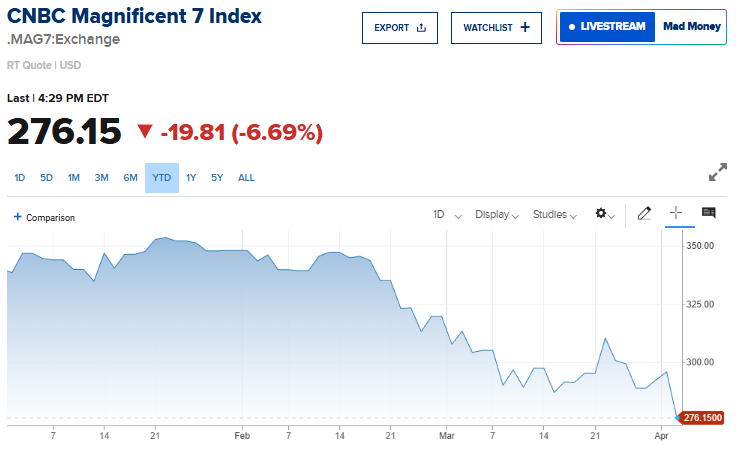Google’s past illuminates Facebook’s future
Don’t forget to meet me at 2pm EST today for this week’s Live Chat at http://tradingwithcody.com/Chat where you can ask me anything.
Good morning and welcome back to the field of dreams, where you have to pay for all the overbuilt retail bank branches that rival Starbucks penetration in every neighborhood in the country and call it a “Bailout”.
Nice, steady-Betty rally to start the day in the broader markets — wasn’t last weekend supposedly the crunch time for the EU? No, they kicked the can down the road a bit further and the stock market is back to ignoring those risks? Shocker! Or not.
Anyway, let’s talk Facebook for again this morning and I’ve got some great historical perspective for you. I bought Google the day it came public and I held it for the next four years until I closed my hedge fund to become a news anchor on national TV. The stock popped 20% its first day and then languished and faded for a few weeks after as Wall Street tried to get its arms around Google’s business model. My analysis told me that Google was revolutionizing its industry — simple search — and was about to figure out new ways to use that Google platform to lock in users and create what I used to call “a burgeoning super-Internet called GoogleNet”. With Gmail and YouTube and all the other daily applications that hundreds of millions of people now use every day, having some understanding and vision of how networks scale and how platforms create their own eco-systems was frankly pretty darn prescient.
I remember a couple weeks after Google came public that Barron’s ran a cover article on how Google was doomed to fail and it quoted a couple analysts who said that they’d be interested in buying Google when it was at $20 a share. The stock was at $100 or so at the time. It never went below $100 again.
Google was a huge home run for me and my subscribers as the stock was up more than 500% from where I’d bought it and told my subscribers to do the same.
After Google came public, the analysts started issuing their research reports and opinions about the stock. Here’s a sample of what they were saying at the time:
Google has made a point of not offering financial guidance to investors, which makes earnings forecasting difficult. Not surprisingly, analysts are mixed when it comes to Google. Ratings and target prices are all over the map with no apparent consensus. Caris rates Google at “average” with a $95 target price; Janco Partners has a “sell” rating and $76 target; Jefferies & Co. rates Google at “buy,” with a price target of $120. Google debuted at $85 per share on Aug. 19 and rose to an intra-day high of $113.48 on Aug. 23.
“Investors will be looking for continued online paid search advertising,” said Garrity. It’s a rapidly growing field with heavy competition from Yahoo! and Microsoft’s MSN. So far, Google outstrips them in terms of search-engine popularity. In June, its share of searches among the top 25 engines was 34.5%, compared with Yahoo!’s 29.2% and MSN’s 14.1%, according to data from comScore Networks.
Most analysts expect Google to take a hit when more stock becomes available for sale in the coming months. But none would venture an estimate. As with most things Google-related, unpredictability seems to be the only given.
Italics there are mine because if you were to insert the word “Facebook” in place of Google in those sentences I’ve italicized above, you too could be a reporter writing about the Facebook IPO instead of the Google IPO.
So back to Facebook – I waited until after Facebook had come public and crashed after its IPO instead of buying it the day it came public. I got lucky in waiting because the stock subsequently fell to where I thought it actually looked cheap — at $26 a share — and it has quickly run above $32 a share in the two weeks since.
And today the analysts from Wall Street — the same guys who were scared of giving an estimate for Google and who were fearful of the unpredictability of Google back when it was 1/6 the price it is now — have this to say about our Facebook long:
BMO is one of several Wall Street firms releasing investment advice on Facebook’s shares. Goldman, RBC and Morgan Stanley are among the firms that have issued optimistic reports, while Barclays, BofA Merrill and Citigroup have offered more subdued takes on the social network. The prevailing sense is it could take Facebook a year more before regaining its IPO price. With a $25 estimate, BMO joins Bernstein as the firms holding the lowest Facebook price targets on the Street, according to FactSet.
Even the bullish analysts describe the fear of the unknowns as the primary reason to worry about the Facebook stock now:
Although Barclays described itself as excited by Facebook’s long-term opportunity in online advertising, it pointed to significant risks. “Facebook does not derive any meaningful revenue from its increasing mobile usage, and its ability to do so going forward is unproven,” it said.
Merrill Lynch agreed, starting its coverage with a neutral rating, and $38 price target. Facebook is in the midst of a mobile usage transition, the bank added, and thus the bank is cautious on Facebook’s revenue trends until new mobile advertising revenue models start driving the top line.
As I wrote the other day when we first started buying Facebook at $26 a share, the same people who are so scared of Facebook’s potential to dominate the next phase of the Internet are probably going to love it when the stock is up a bunch and the future more clear to them. In the meantime, I think Facebook is a must-own and it is as large a position for me now as my long-held biggest positions, Google and Apple.



